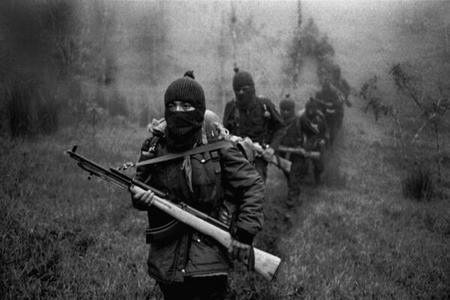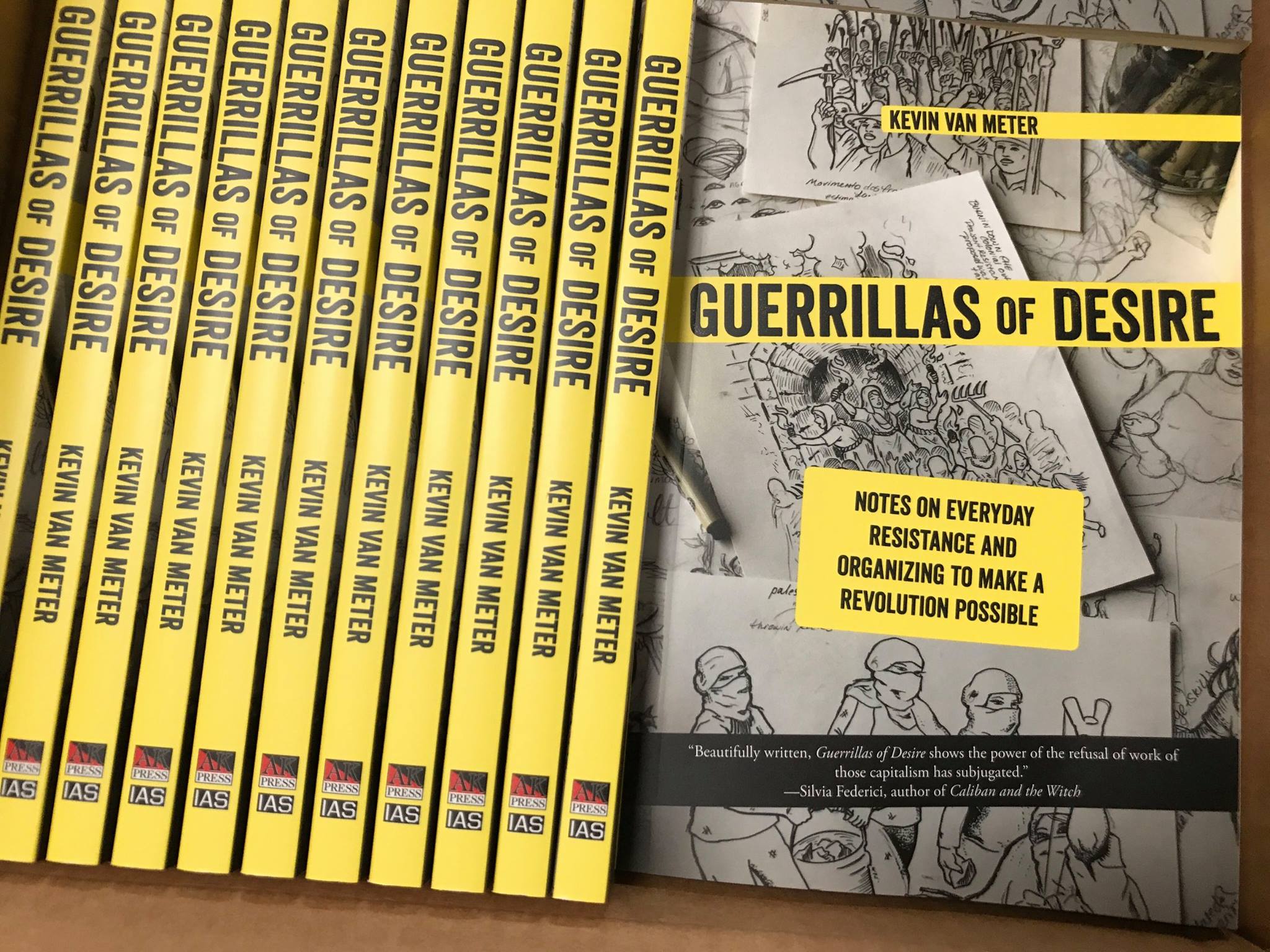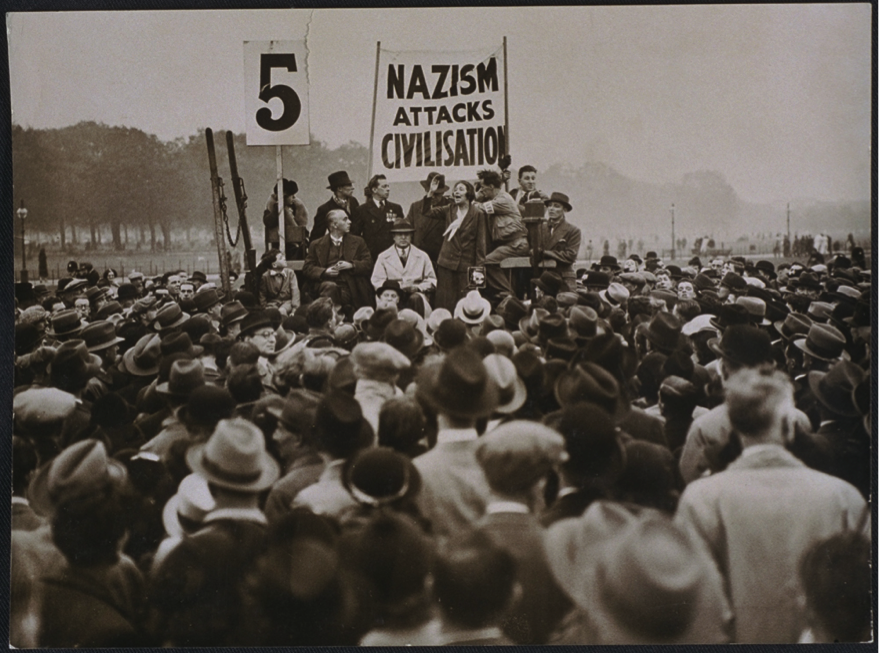
Since Trump’s election, fascism has barged onto center stage, moving more brazenly into public space, mainstream media and public discourse than it has in decades. This renewed and emboldened presence of overt fascism has been met by an explosion of analysis and discussion about its history and politics, and the conditions necessary for its emergence. A proportionally growing attention is also being paid to the history and politics of anti-fascism.
This is welcome, and it is crucially needed. However, it’s also true that the bulk of the writing and speaking on fascism and anti-fascism—the better-selling books, the high-profile interviews–are being done by white men.
#Organizing
Friendship is a Root of Freedom: from Joyful Militancy, by Nick Montgomery & carla bergman
“To become what we need to each other, and to find power in friendship, is to become dangerous.”
—anonymous [1]
“I have a circle of friends and family with whom I am radically vulnerable and trust deeply – we call it coevolution through friendship.”
—adrienne maree brown [2]
“These are not just words; they are clues and prods to earthquakes in kin making that are not limited to Western family apparatuses, heteronormative or not.”
—Donna Haraway [3]
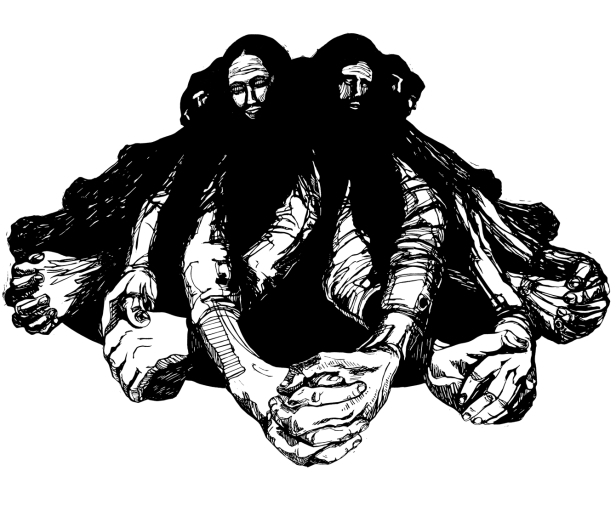
Twenty-Five Theses on Fascism, by Shane Burley
With the growth of the Alt-Right and the Trumpist movement in the US, the Left has grappled with how to understand and define fascism in the 21st century context. The conditions, players, and tactics are fundamentally different than its first manifestations, and so many antiquated … Read more
The Seeds of Anti-Capitalist Revolt Found in Everyday Resistance: A Review of Guerrillas of Desire: Notes on Everyday Resistance and Organizing to Make a Revolution Possible by Kevin Van Meter (AK Press, 2017), Review by Scott Campbell

Back when I first began selling my labor for a wage in the wasteland of suburbia’s strip malls, I can recall the tedium of stocking shelves, summoning up insincere courtesy in the face of entitled customers and obnoxious bosses, comparing the stacks of money counted at the end of the day with the totals on our paychecks, and feigning adherence to whatever motivational façade management cooked up to mask the reality of our exploitation.
Yet I also remember, much more vividly and fondly, the latent and occasionally eruptive defiance among my co-workers. This included the constant collective complaining about the job, taking more and longer-than-approved breaks, working as little as possible, fudging time sheets, stealing, and the intermittent screaming matches with the boss in the middle of the store. Underpinning all these actions was an unspoken but broadly understood code of silence when it came to such transgressions and, when appropriate, expressions of support for them.
At the time, I didn’t think much about this, it was just how things happened and I’ve encountered similar experiences to varying degrees in every workplace since. Our actions weren’t guided by a political framework nor was there any attempt to organize them in a directed manner. It was more a spontaneous, innate reaction to experiencing the coercion of capitalism. I had cause to reflect upon this anew while reading Kevin Van Meter’s new book, Guerrillas of Desire: Notes on Everyday Resistance and Organizing to Make a Revolution Possible, published by AK Press and the Institute for Anarchist Studies.
Guerrillas of Desire Book Tour!
Following the release of Octavia’s Brood: Science Fiction Stories from Social Justice Movements, edited by Walidah Imarisha and adrienne maree brown, and Walidah Imarisha’s Angels with Dirty Faces, which won the Oregon Book Award for Creative Nonfiction, the Institute for Anarchist Studies is proud to announce the publication of Kevin Van Meter’s Guerrillas of Desire: Notes on Everyday Resistance and Organizing to Make a Revolution Possible, published in conjunction with AK Press. Join Kevin as he reads from and talks about his book on these upcoming dates!
Perspectives on Anarchist Theory Call for Contributions: Beyond the Crisis
Rapid policy changes, funding shifts and cuts, spikes in hate crimes, inflammatory rhetoric, corrupt democratic processes, and international etiquette blunders characterize the current political situation in the United States. Since the new regime assumed power, the immediate dangers to people of color, immigrants, queer folks, and the poor have escalated. We respond with the urgency of firefighters, racing from hot spot to hot spot, putting out flames where they threaten to consume our communities. We remain on constant high alert to respond to the next hate crime, the next anti-immigrant raid, the next attack on the planet.
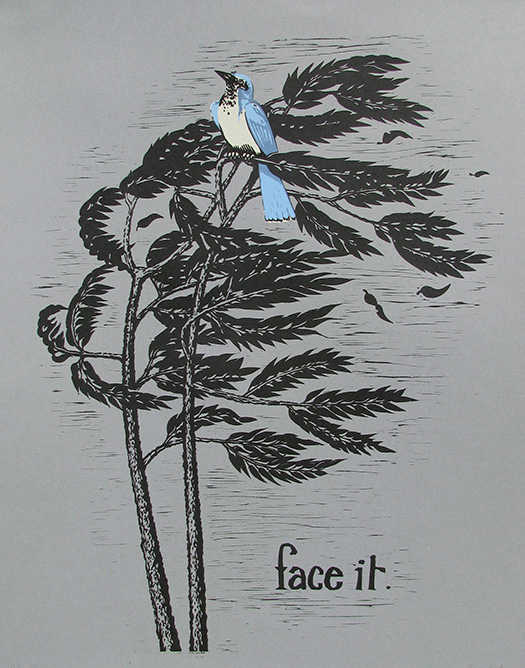
In these moments of urgency, it can feel as if we will never be able to do enough—as if our long-term campaigns are too slow to develop, our reach too short. How do we respond? Does this cycle require us to drop everything in order to react? Must we abandon our own more proactive, visionary agendas, our long-term strategic thinking, our imagining and pre-figuring of alternatives to the existing society? Let us remember that none of this appeared just this year, out of nowhere. Capitalism, war, racism, fascism, xenophobia, misogyny, and other forces of oppression have long been shaping the terrain in which we fight. If we neglect our own aspirations, then we’ve already lost.
The Fourth Star: The New Junior Wobblies and the Next Generation of Union Militants, by Sadie Farrell and M.K. Lees
Several factors played into our collective decision not to run a print issue of Perspectives on Anarchist Theory for the current year. We sincerely thank all inquiries and submissions sent for what was hoped to be an issue on Play. A call for submissions for a Beyond The Crisis print issue of Perspectives (2018) is here.
This is an article written by two Wobblies in response to our call for Play essays. These organizers bridge the gap between play and the practice of organizing skills via educational skits and fun activities led by the New Junior Wobblies, the young members of the Industrial Workers of the World (IWW).
The IWW globe logo holds three stars representing Education, Organization and Emancipation. This article looks at Recreation – a fourth star – from challenging uneven relations of power, to making joy central to organizing against capitalism, regardless of age.
Shortly after a wave of government repression and internal splits nearly destroyed the Industrial Workers of the World (IWW) as a functioning labor organization, a group of Wobblies felt the immediate need to find new ways to raise the next generation of revolutionary unionists. As a part of solidarity support for striking IWW coal miners in Colorado, children of union members were invited to join an IWW organization of their own. These Wobbly kids formed “locals” to organize support for their striking parents, and alongside them, develop a rudimentary understanding of the world and how they might soon be a part of organizing to change it. To the IWW tripartite motto, “Education, Organization, Emancipation” they added “Recreation,” and in 1927, the Junior Wobblies Union was born.
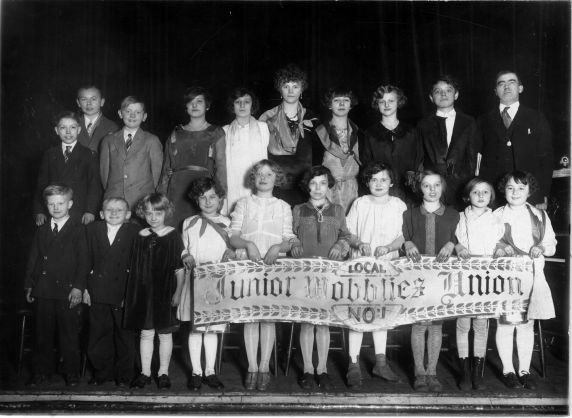
Guerrillas of Desire Book Launch, with Kevin Van Meter
Powell’s on Hawthorne
August 10th at 7:30pm
3723 SE Hawthorne Blvd., Portland, Or
The Institute for Anarchist Studies, in conjunction with our comrades at AK Press, have proudly published Guerrillas of Desire: Notes on Everyday Resistance and Organizing to Make a Revolution Possible, by Kevin Van Meter. Join Kevin and friends and comrades as he launches his book at Powell’s Books, on Hawthorne, in Portland, Oregon.
What is Anarchism?
 Lara Messersmith-Glavin and Kristian Williams, of the Institute for Anarchist Studies and Perspectives on Anarchist Theory journal collective, and Ayme Ueda, of the Black Rose Anarchist Federation / Federación Anarquista Rosa Negra, recently appeared on X-RAY FM in Portland, Oregon. The show is called Group Therapy, hosted by Natalie Sept. This episode features an hour discussion of topics including what anarchism is, what anarchists want and do, anarchist critiques of the world, and challenges anarchists face. Listen in below!
Lara Messersmith-Glavin and Kristian Williams, of the Institute for Anarchist Studies and Perspectives on Anarchist Theory journal collective, and Ayme Ueda, of the Black Rose Anarchist Federation / Federación Anarquista Rosa Negra, recently appeared on X-RAY FM in Portland, Oregon. The show is called Group Therapy, hosted by Natalie Sept. This episode features an hour discussion of topics including what anarchism is, what anarchists want and do, anarchist critiques of the world, and challenges anarchists face. Listen in below!
Anarchist Theory & Action Camp
The Institute for Advanced Troublemaking Anarchist Summer Camp will be held August 11th – 18th, 2017 in Worcester, MA.
Maia Ramnath, Institute for Anarchist Studies (IAS) and Perspectives on Anarchist Theory journal collective member; Cindy Milstein and Todd May, former IAS board members; and Hillary Lazar, IAS writing grant recipient, and author of the essay “Until All Are Free: Black Feminism, Anarchism, and Interlocking Oppression” in the current issue of Perspectives, are among many people presenting at this summer’s Institute for Advanced Troublemaking anarchist summer camp in the Northeast US. The summer camp is a week-long theory and action camp to be held in Worcester, MA August 11th – 18th, 2017.


